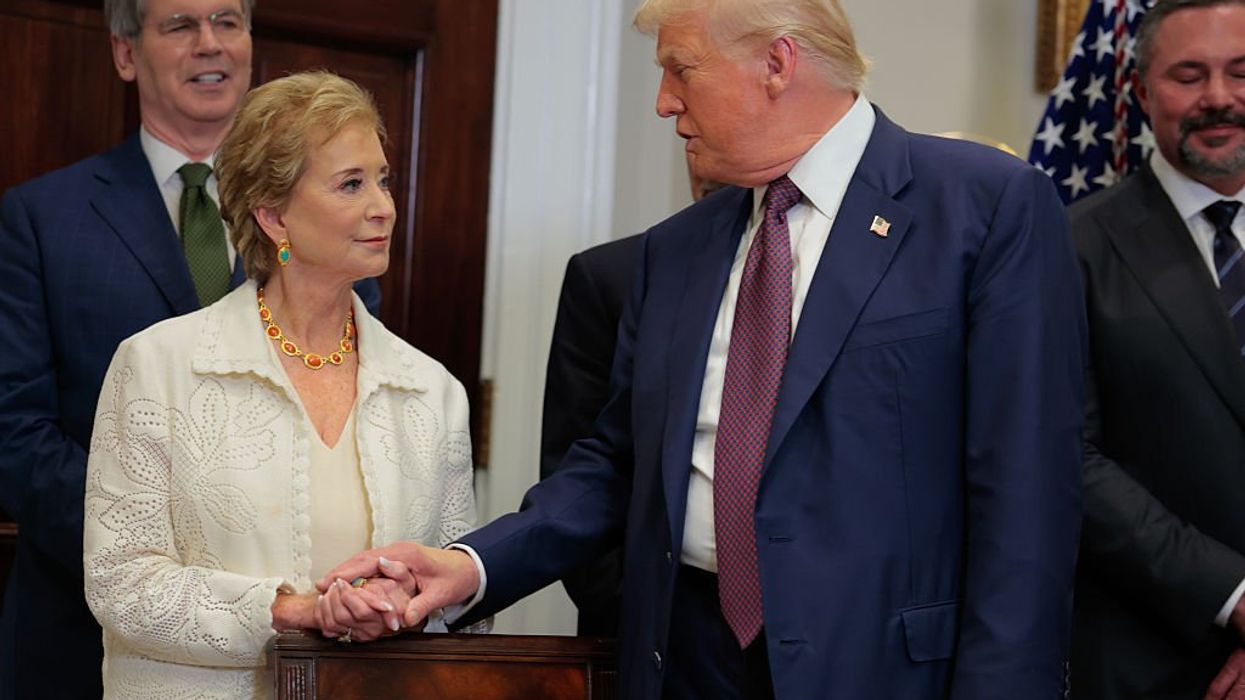© 2025 Blaze Media LLC. All rights reserved.
"Merit, not muscle" vs. An all out ban
As fiscal restraint becomes a popular rallying cry this political season, Politico looks at how Republicans are planning on handling earmarks once the party-imposed, one-year ban expires. The message isn't too clear:
Rep. Eric Cantor
House Minority Whip Eric Cantor indicated in August that earmarks could make their way back but would be allowed based on "merit, not muscle." He tried to clarify Wednesday, telling Politico that his party has "learned its lesson, and a new majority will spend its time and energy cutting spending, not increasing it, and that includes earmarks."
Rep. John Boehner
House Minority Leader John Boehner is hedging, saying Republicans banned earmarks because of a broken process spurred by Democrats but that "whatever happens in November, the need for bipartisan reform will continue."
Rep. Mike Pence
Yet House Republican Conference Chairman Mike Pence said Wednesday that Republicans are still determined to "end earmarks as we know them."
"The American people are tired of spending as usual in Washington, D.C., and we need to close the favor factory and fundamentally reform the way we spend people's money," Pence said.
Rep. Jeff Flake
Arizona Rep. Jeff Flake, the most outspoken critic of earmarks, hopes to use the large influx of fiscally conservative Republicans to push an all-out ban on the earmarking of old. But short of that, he’s going to prod leadership to force a ban on earmarking for companies who donate to a lawmaker’s reelection campaign. ...
"It was pretty easy to do a one-year moratorium when we kind of knew that we weren’t going to do appropriations bills this year," Flake said. "So the real test will be what we do when we’re in charge."
Candidate Mick Mulvaney (R-SC)
"I'd prefer to get rid of [earmarks] until at least we balance the budget," Mulvaney told Politico.
Rep. Hal Rogers
Rogers said he’s open to reform and promises to abide by what the conference decides, though he still wants to make sure lawmakers retain the power of the purse.
"I think with complete transparency and a layered review, so that we weed out the unqualified, there is obviously a need for a member to be able to come on out to the Congress for a particular need in his or her district that the regular order is not solving," Rogers told Politico.
Want to leave a tip?
We answer to you. Help keep our content free of advertisers and big tech censorship by leaving a tip today.
Want to join the conversation?
Already a subscriber?
more stories
Sign up for the Blaze newsletter
By signing up, you agree to our Privacy Policy and Terms of Use, and agree to receive content that may sometimes include advertisements. You may opt out at any time.
Related Content
© 2025 Blaze Media LLC. All rights reserved.
Get the stories that matter most delivered directly to your inbox.
By signing up, you agree to our Privacy Policy and Terms of Use, and agree to receive content that may sometimes include advertisements. You may opt out at any time.





